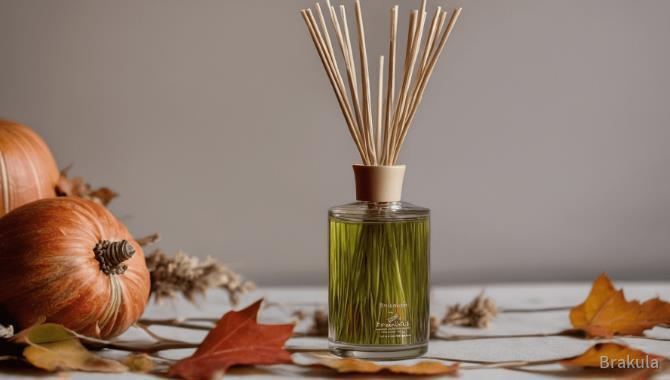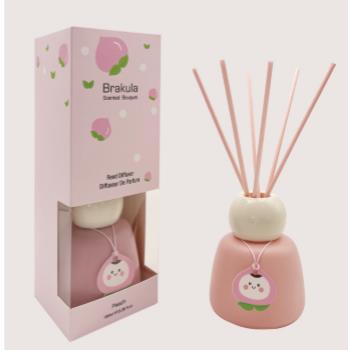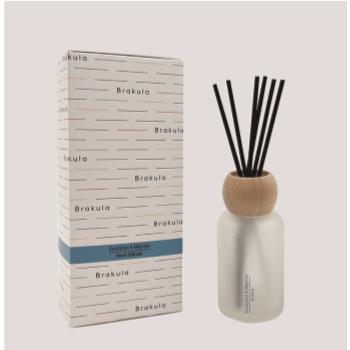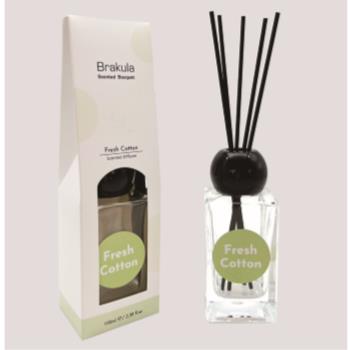Hotel Scent Systems for Enhanced Guest Experience
A well-chosen fragrance, such as luxury fragrances and luxury scents, can evoke emotions and influence perceptions by utilizing scent to diffuse scents. Guests often associate pleasant scents with luxury and warmth. This leads to increased satisfaction and loyalty. As competition grows, hotels need every edge they can get, including pets, home-like amenities, and an innovative scent machine utilizing scent. Implementing a hotel scent system with luxury scents and fragrance blends to diffuse scents is an effective strategy to stand out with global fragrances. It’s not just about aesthetics; it’s about creating lasting impressions with luxury scents and famous hotel scents that keep guests coming back for more, especially when the scent stays thanks to the innovative scent machine.

Benefits of Hotel Scent Systems
Ambiance Enhancement
Hotel scent systems diffuse luxury scents and play a crucial role in improving the overall ambiance. Pleasant fragrances create a welcoming environment for guests. First impressions matter, and scents can influence how visitors perceive a hotel. A carefully selected hotel scent, including luxury scents, can evoke feelings of comfort and relaxation. For example, fresh linen or citrus scents can make spaces feel clean and inviting.
A study showed that pleasant smells from an innovative scent machine can enhance guest satisfaction with luxury scents, as the scent stays in the air. Hotels using scent marketing reported increased customer loyalty. Guests often remember their experiences based on the scents they encountered. This connection between memory and smell is powerful. Thus, hotels benefit from investing in effective scent solutions.
Promotes Relaxation
Hotel scents also promote relaxation and comfort. Fragrances like lavender and chamomile, along with luxury scents, are known for their calming effects, enhanced by an innovative scent machine. These scents can reduce stress and anxiety levels. Guests who feel relaxed, thanks to luxury scents from the innovative scent machine, are more likely to enjoy their stay.
The right luxury scents hotel scent can improve mood and well-being. It creates an atmosphere with luxury scents and an innovative scent machine where guests can unwind after a long day of travel or business meetings. For instance, many luxury hotels use signature scents to enhance their brand identity. These famous hotel scents become part of the guest experience, leaving lasting impressions.
Effective Technology
Utilizing safe and effective diffusion technology for luxury scents is essential for hotel scent systems. The Vangogh360 hotel scent diffuser is one popular option for luxury scents. This innovative scent machine allows hotels to disperse fragrances evenly throughout their spaces. It ensures consistent scent delivery without overwhelming guests.
Many hotels prefer this innovative scent machine technology because it suits various settings, including lobbies and guest rooms. Properly diffused scents can transform ordinary spaces into extraordinary experiences. The hotel scent machine manual provides easy instructions for setup and maintenance.
Versatile Applications
Hotel scent systems are not limited to hospitality settings alone. They can be applied in homes and other businesses as well, including an innovative scent machine. Individuals seeking to create a relaxing environment at home can benefit from similar technologies, such as an innovative scent machine.
Choosing the right scent is important for achieving desired effects. Select hotel scents that match the atmosphere you want to create. Whether it's energizing or soothing, there’s an innovative scent machine for every occasion.
Enhancing Guest Experience
Unique Memories
Hotels can create lasting memories through unique scent experiences. Different scents trigger specific emotions and memories. For instance, a warm vanilla scent can remind guests of home-baked cookies. This connection makes their stay more memorable.
Guests often associate certain smells with positive experiences. A refreshing citrus scent can energize the atmosphere. When guests return, they may be greeted by the same familiar aroma from the innovative scent machine. This feeling of familiarity makes their visit special.
Signature Scent
Establishing a signature scent is essential for hotels. It helps create brand recognition. Guests start to associate that specific fragrance from the innovative scent machine with the hotel experience. This association encourages repeat visits.
When guests recognize a hotel's signature scent, it sparks anticipation. They look forward to experiencing that innovative scent machine smell again during their next stay. This emotional connection, enhanced by an innovative scent machine, can lead to loyal customers who return time and again.
Emotional Connections
Scents have a powerful impact on emotions. Hotels can use this to their advantage by selecting fragrances that evoke positive feelings. For example, lavender promotes relaxation and calmness. Using such scents in guest rooms or lobbies creates a soothing environment.
Nostalgia plays a significant role as well. Scents can remind people of cherished moments from their past. A fresh linen scent might bring back memories of summer vacations at grandma's house. Hotels can tap into these emotional connections.
Safe Environments
Safety is a top priority for hotels, especially when using scent systems. Many hotels choose eco-friendly and safe scents for their guests. These scents do not contain harmful chemicals that could affect health. Ensuring safety allows guests to enjoy their experience without worry.
Also, pet-friendly hotels can incorporate scents that are safe for animals. This approach caters to guests traveling with pets while maintaining a pleasant atmosphere for everyone.
Building Brand Identity
Distinctive Signature
A hotel's scent can set it apart from competitors. Developing a unique olfactory brand signature creates a memorable experience for guests. This signature should reflect the hotel’s personality and ethos. For example, a luxury hotel may choose warm, rich scents like sandalwood or vanilla. These fragrances evoke feelings of comfort and elegance.
Guests often associate specific scents with their experiences. A well-chosen fragrance can trigger positive memories. This connection can encourage repeat visits. Many hotels have successfully used this strategy to enhance their brand identity.
Consistent Application
Consistency is key in building brand recognition. Applying the same scent throughout various areas of the hotel reinforces the brand image. Guests should encounter this fragrance in the lobby, hallways, and even guest rooms. By doing so, the scent becomes an integral part of the hotel's atmosphere.
For instance, a beach resort might use fresh coconut or sea breeze scents in common areas. This creates a cohesive experience that transports guests to a tropical paradise. The consistent application of these scents enhances brand recall. It helps guests remember their stay long after they leave.
Communicating Values
Fragrances can also communicate a hotel's values and themes. Selecting scents that resonate with the target audience strengthens emotional connections. A boutique hotel focused on sustainability may opt for natural, earthy fragrances like lavender or eucalyptus. These choices reflect their commitment to eco-friendliness.
Guests appreciate when brands align with their values. A thoughtfully chosen scent can enhance this connection. It shows that the hotel understands its clientele's preferences and lifestyle choices.
Examples of Successful Brands
Many successful hotels have effectively used scent marketing to build their identity. For example, the Westin Hotels & Resorts use a signature white tea scent throughout their properties. This scent reflects their focus on wellness and relaxation.
Another example is the Ritz-Carlton, which employs a custom blend of floral notes to create an elegant atmosphere. These scents are carefully integrated into guest experiences, from check-in to dining.
Choosing the Right Fragrance
Theme Consideration
Fragrances should align with the hotel’s theme and décor. A luxurious hotel may benefit from luxury scents like sandalwood or jasmine. These scents create a welcoming atmosphere that matches opulent surroundings.
A beach resort might opt for fresh and airy fragrances. Citrus or ocean-inspired scents can evoke feelings of relaxation. Matching the scent to the environment enhances guest experiences.
Guest Demographics
Understanding guest demographics is crucial. Different age groups and cultures may prefer various fragrance blends. For example, younger guests might enjoy fruity or floral options. In contrast, older guests may favor more traditional scents like lavender or cedarwood.
Hotels can gather data from customer feedback or surveys. This information helps in selecting the right custom fragrances. A well-chosen scent appeals to a broad audience while also catering to specific preferences.
Testing Scents
Testing multiple scents is essential before making a final decision. Hotels should place different scent options in various areas. For instance, the lobby might feature a warm vanilla scent, while the spa could have calming eucalyptus.
Feedback from staff and guests can provide valuable insights. It helps determine which fragrances enhance the overall experience best. A consistent fragrance throughout the hotel creates a memorable stay.
Fragrance Consistency
Maintaining a consistent fragrance day after day is vital. Guests appreciate familiar scents when they return. This consistency builds brand loyalty and enhances their overall experience.
Using high-quality fragrance oils ensures longevity. Many hotels use diffusers to disperse these oils evenly throughout the space. This method allows for a free fragrance experience without overwhelming guests.
Scent Duration
The duration of the scent matters as well. Some fragrances dissipate quickly, while others linger longer. Selecting global fragrances known for their staying power can be beneficial.
For example, using 10 ml fragrance oils in diffusers can keep spaces smelling fresh for hours. Regularly checking and refilling these devices helps maintain a pleasant atmosphere.
Scented Candles
Scented candles are another option for enhancing ambiance. They provide a cozy feel while adding beautiful fragrances to spaces. Placing them strategically can create inviting areas for guests to relax.
However, safety must be a priority when using candles in public spaces. Using battery-operated options can reduce risks while still providing delightful aromas.
Types of Scent Diffusers
Air Diffusion
Air scent diffusers come in various forms. They include nebulizers and ultrasonic diffusers. Nebulizers use high pressure to break down fragrance oils into tiny particles. This allows for a strong scent that fills the room quickly. Ultrasonic diffusers mix water with essential oils to create a fine mist. They are quieter and can also add humidity to the air.
These options suit different spaces. For larger areas, an environment scent machine may be more effective. These machines connect to HVAC systems, distributing scents throughout the building. They ensure even coverage without needing multiple devices.
Luxury Diffusers
Luxury diffusers offer a premium experience. They often feature elegant designs that enhance decor. Many luxury models utilize cold air diffusion technology. This method preserves the integrity of the fragrance while dispersing it effectively.
e brands provide customizable options for businesses. They allow users to select specific scents or even change them seasonally. This flexibility can attract guests and create a memorable atmosphere.
Used Diffusers
Used diffusers present a budget-friendly option for many establishments. These devices can still perform well if maintained properly. It is important to check their functionality before purchasing used units.
Maintenance plays a critical role in ensuring consistent performance. Regular cleaning helps prevent clogs and buildup of oils. Following manufacturer guidelines can extend the lifespan of these devices.
Mini360 Diffuser
The mini360 diffuser is compact yet powerful. It suits smaller spaces like hotel rooms or reception areas. Despite its size, it uses advanced technology to diffuse scents evenly.
This diffuser type is easy to operate and maintain. Users can switch out fragrances quickly, allowing for seasonal changes or special events. Its portability makes it ideal for temporary setups or events.
Coverage Needs
Selecting the right diffuser depends on space size and layout. A small lobby may only need one unit, while a large ballroom might require several devices. Understanding coverage needs ensures that scent distribution remains consistent.
Consider the height of ceilings and furniture placement as well. These factors affect how scents travel through the air. Proper planning leads to optimal scent diffusion throughout the area.
Maintenance Requirements
Maintenance varies by diffuser type but is crucial for performance. Regularly changing fragrance oils prevents stale smells from developing. Cleaning procedures differ; some require simple wipes, while others need deeper cleaning.
Following maintenance schedules keeps devices running smoothly and efficiently. Investing time in care enhances the overall scent experience for guests.
Creating a Specific Atmosphere
Evoking Moods
Scents can significantly influence emotions. For instance, lavender promotes tranquility and relaxation. Many hotels use this scent in their spa areas to create a calming environment.
Citrus scents like lemon or orange can energize guests. These fragrances are often found in hotel lobbies. They help create a welcoming and lively atmosphere.
Different scents trigger different feelings. Hotels can choose scents based on the experience they want to provide. This choice can enhance the overall guest experience.
Tailoring Intensity
Fragrance intensity is crucial for setting the right mood. A calming scent should be subtle in a spa setting. Guests should feel relaxed without being overwhelmed by strong smells.
In contrast, an invigorating scent works well in busy areas like lobbies. Here, a stronger fragrance can energize guests as they arrive or depart. Finding the right balance is key to creating a pleasant atmosphere.
Hotels must consider how scents blend with their overall design and experience. The right fragrance should complement the space, not overpower it.
Seasonal Scents
Seasonal scents add a festive touch to hotel atmospheres. During holidays, many hotels incorporate specific fragrances. For example, cinnamon and pine are popular during winter months.
These scents evoke feelings of warmth and comfort. They remind guests of holiday traditions and celebrations. This strategy enhances the overall guest experience during special events.
Hotels may also switch fragrances throughout the year. Doing so keeps the atmosphere fresh and engaging for repeat visitors.
Air Quality Considerations
Maintaining good air quality is essential when using scent systems. Guests expect clean air in hotel environments. Strong fragrances can sometimes mask poor air quality.
Using high-quality scent diffusers ensures that air remains fresh while adding pleasant aromas. Proper ventilation is also important to avoid overwhelming guests with scents.
Hotels should regularly monitor their scent systems. Ensuring they operate effectively helps maintain a comfortable atmosphere for all guests.
Selecting Fragrances for Target Guests
Guest Preferences
Understanding your guests' preferences is crucial. Different demographics have unique tastes in scents. For example, younger guests may prefer fresh and fruity fragrances. Older guests might lean towards classic floral or woody scents.
Surveys can help identify these preferences. Ask guests about their favorite smells during their stay. Use this information to curate a scent selection that resonates with them. This approach creates a welcoming atmosphere.
Cultural Influences
Cultural backgrounds significantly influence fragrance choices. Guests from different regions may respond differently to certain scents. For instance, citrus scents are popular in warmer climates, while earthy scents appeal to colder regions.
Consider the cultural significance of certain fragrances. Some cultures value floral scents for relaxation. Others may prefer spices that evoke home and comfort. Research local customs to align your scent offerings with guest expectations.
Feedback Mechanism
Gathering feedback is essential for refining fragrance selections. Encourage guests to share their thoughts on the scents used in the hotel. This can be done through comment cards or digital surveys.
Analyzing this feedback helps identify what works and what doesn't. If many guests dislike a particular scent, it’s time for a change. Regularly updating fragrance options keeps the experience fresh and engaging.
Practical Examples
Certain scents can create specific moods. For instance, lavender promotes relaxation, making it ideal for spas or wellness areas. Citrus scents can energize common areas like lobbies or cafes.
Using seasonal fragrances can also enhance the guest experience. Consider using pumpkin spice in autumn or peppermint during winter holidays. These scents evoke feelings of nostalgia and warmth.
Implementation Steps
Identify your primary guest demographic.
Research preferred fragrances based on age, culture, and region.
Curate a scent selection that aligns with these findings.
Implement a feedback system to gather guest opinions.
Analyze feedback and adjust fragrances accordingly.
Understanding Diffuser Functions
Diffusion Methods
Diffusers use various methods to spread scents. Cold-air diffusion is one popular technique. This method breaks down fragrance oils into tiny particles. It releases them into the air without heat. This keeps the scent's integrity intact.
Heat diffusion is another common method. It uses heat to warm the fragrance oils. This process can change the scent's character. Some notes may become stronger, while others fade away. Each method affects how a hotel’s atmosphere feels.
Programmable Features
Modern diffusers come with advanced features. Many have programmable settings for convenience. Users can schedule when the diffuser operates. This allows hotels to align scent delivery with guest traffic.
Intensity adjustments are also available. Hotels can increase or decrease scent strength based on needs. A busy lobby may require a stronger scent. In contrast, a quiet hallway might need a lighter touch.
These features enhance guest experiences. They allow hotels to create specific moods at different times of day.
Waterless Systems
Waterless systems offer several advantages over traditional methods. They do not require water to operate. This leads to more efficient scent delivery. Without water, there is less maintenance involved.
Waterless systems also reduce the risk of spills or leaks. This makes them ideal for high-traffic areas in hotels. These systems can run longer without needing refills.
Efficiency is another key benefit. Waterless diffusers often use less energy than their counterparts. This can lead to lower operational costs for hotels.
Scent Delivery Impact
The choice of diffuser impacts how guests perceive scents. Well-designed diffusers ensure even distribution throughout spaces. Guests should experience consistent scent intensity in all areas.
Proper placement of diffusers matters as well. Placing them near airflow sources enhances diffusion effectiveness. This helps spread pleasant aromas quickly and evenly.
Enhancing Guest Experience
Scent plays a crucial role in creating memorable experiences for guests. A carefully chosen fragrance can evoke positive emotions and memories. It contributes to overall satisfaction during their stay.
Hotels that utilize effective diffusers create inviting environments. Guests often associate pleasant scents with comfort and relaxation.
Crafting a Scent Strategy
Fragrance Selection
Selecting the right fragrance is crucial. Utilizing scent effectively can enhance the overall guest experience. Hotels should consider their brand identity when choosing scents. Custom scents that reflect the hotel's theme create a unique atmosphere. For example, a beach resort might choose fresh ocean-inspired fragrances, while a luxury hotel might opt for rich floral notes.
A comprehensive plan should outline these selections. This plan must include guest preferences and seasonal trends. Research shows guests respond positively to inviting aromas. Therefore, aligning scents with the time of year can boost satisfaction.
Application Methods
The efficient scenting process involves various application methods. Diffusers are popular for distributing scents evenly throughout spaces. These devices can be programmed for specific times and intensities. Some hotels use HVAC systems to circulate fragrance through air vents.
Scent marketing also plays a vital role here. Strategically placing diffusers in high-traffic areas enhances exposure. Reception areas and lobbies are ideal spots for stronger scents. Light scents work better in dining areas where food aromas are present.
Maintenance Schedules
Regular maintenance is key to maintaining scent quality. A schedule should ensure that diffusers are cleaned and refilled regularly. Neglecting this can lead to inconsistent scent distribution and negative guest experiences.
Monitoring guest reactions helps refine the scent strategy further. Feedback mechanisms like surveys can provide valuable insights into guest preferences. Adjustments based on this feedback will keep the scent identity fresh and engaging.
Aligning with Marketing Initiatives
Aligning scent strategy with marketing initiatives strengthens brand messaging. Scents should evoke emotions that resonate with guests. For instance, a calming lavender scent may enhance relaxation in a spa setting, reinforcing wellness branding.
Scentiment standards must be met to ensure quality and consistency. This includes using safe and pleasant ingredients for all custom scents. A strong scent identity differentiates hotels from competitors.
Monitoring Trends
Keeping an eye on changing trends is essential for success. Guest preferences evolve over time, so staying updated is necessary. Seasonal changes or global events can influence what guests find appealing.
Hotels can analyze data from social media and reviews to gauge reactions to scents. Adjusting the scent strategy based on these insights ensures relevance in a competitive market.
Observações Finais
Hotel scent systems can transform your space. They enhance guest experiences, strengthen brand identity, and create memorable atmospheres. Choosing the right fragrance and diffuser type is crucial for targeting your audience effectively. A well-crafted scent strategy not only elevates your hotel's appeal but also fosters loyalty among guests.
Now is the time to explore how scent can set your hotel apart. Dive into the world of fragrances and discover what resonates with your guests. Implementing these strategies positions you as a leader in the hospitality industry. Don't miss out on the chance to elevate your brand through scent. Start today!
Frequently Asked Questions
What are hotel scent systems?
Hotel scent systems are specialized devices designed to disperse fragrances throughout a hotel environment, enhancing the overall atmosphere and guest experience.
How do scent systems enhance guest experience?
Scent systems create a welcoming ambiance that can evoke positive emotions, making guests feel more comfortable and relaxed during their stay.
Why is brand identity important for hotels?
A strong brand identity helps hotels stand out in a competitive market. Scent systems can reinforce this identity by using unique fragrances that guests associate with the brand.
How do I choose the right fragrance for my hotel?
Consider your hotel's theme, target audience, and desired atmosphere. Opt for fragrances that align with your brand message and resonate with your guests' preferences.
What types of scent diffusers are available?
Common types include nebulizing diffusers, ultrasonic diffusers, and fan-based diffusers. Each type has its own benefits and suits different spaces within a hotel.
How can I create a specific atmosphere with scents?
Select fragrances that evoke particular feelings or memories. For example, citrus scents can energize, while lavender promotes relaxation—ideal for spas or lounges.
What should I consider when selecting fragrances for target guests?
Understand your guests' demographics and preferences. Tailor your fragrance choices to match their expectations, ensuring a memorable and personalized experience.



